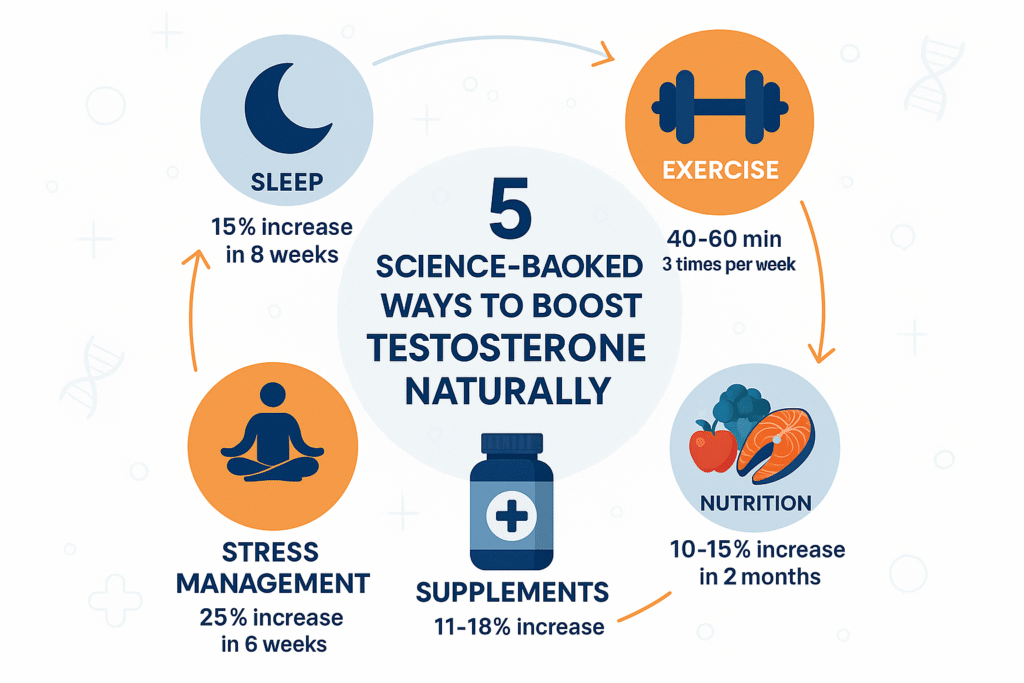Healthy Travel Tips for Men Over 40: Stay Fit on the Go

Traveling in your 20s was simple. You could survive on airport snacks, run on a few hours of sleep, and bounce back from jet lag in a day. But as a man in your 40s or 50s, the game has changed. Your metabolism isn’t as forgiving, muscle mass requires more effort to maintain, and a long-haul flight can leave you feeling drained for days. The demands of business trips or the desire to fully enjoy a hard-earned vacation shouldn’t mean sacrificing the health and fitness you work so hard to maintain at home. The good news is that with a strategic approach, you can not only survive but thrive while on the road.
This guide provides actionable and realistic healthy travel tips for men over 40. We’ll move beyond generic advice and dive into specific strategies tailored to the unique physiological needs of men in this age bracket. From pre-trip planning and bulletproof nutrition strategies to effective travel workouts and mastering sleep, consider this your ultimate playbook for staying fit, energized, and in control of your health, no matter where your journey takes you. We’ll cover everything you need to feel your best, ensuring you return home feeling refreshed, not wrecked.
Incorporating healthy travel tips for men over 40 can make a significant difference in your overall experience. These strategies help ensure you prioritize wellness while enjoying your travels.
Healthy Travel Tips for Men Over 40

Many men overlook healthy travel tips for men over 40, but understanding these can enhance your travel experience.
Why Travel Gets Harder for Men in Their 40s and 50s
Understanding the “why” is crucial for building an effective strategy. As men age, several physiological shifts occur that can be exacerbated by the stress of travel:
- Slowing Metabolism: Basal metabolic rate (BMR) naturally declines with age. This means your body burns fewer calories at rest, making it easier to gain weight from airport food and restaurant meals.
- Hormonal Changes: Testosterone levels, vital for muscle mass, energy, and mood, begin a gradual decline. The stress of travel can increase cortisol (the stress hormone), which can further suppress testosterone and encourage fat storage, particularly around the midsection.
- Reduced Recovery Capacity: Your body doesn’t bounce back from intense workouts, poor sleep, or long flights as quickly as it used to. Joint stiffness and muscle soreness can linger.
- Increased Sleep Disruption: Age can affect sleep architecture, making it harder to adapt to new time zones and overcome jet lag. According to the Centers for Disease Control and Prevention (CDC), disruptions to your circadian rhythm can have significant health impacts.
Recognizing these challenges isn’t about limitations; it’s about being smarter with your approach. The following tips are designed to directly counter these effects.
Pre-Trip Planning: Setting Yourself Up for Success
The battle for a healthy trip is often won before you even leave the house. A little forethought goes a long way.
Implementing healthy travel tips for men over 40 can help you stay fit, regardless of your destination.
Strategic Accommodation Choices
When booking your hotel, don’t just look at the location. Prioritize places that support your health goals:
- Check for a Gym: Is it well-equipped and accessible 24/7? Look at photos. A few dumbbells and a treadmill are better than nothing.
- In-Room Kitchenette: A mini-fridge and microwave are game-changers. This allows you to store healthy snacks like Greek yogurt, fruit, and pre-made protein shakes.
- Proximity to a Grocery Store: A quick Google Maps search can reveal if you can easily stock up on healthy essentials upon arrival.
- Safe Walking/Running Routes: Check if the hotel is in an area with parks or safe pedestrian paths for an easy morning run or walk.
Pack Your Health Arsenal
Your suitcase should contain more than just clothes. Create a small “health kit” to stay on track.
- Resistance Bands: Lightweight, versatile, and perfect for a full-body workout in your hotel room.
- Portable Protein Powder: Pack single-serving sachets to easily mix with water or milk for a quick post-workout recovery shake or meal replacement.
- Healthy Snacks: Pack nuts, seeds, protein bars, and jerky to avoid being tempted by unhealthy airport options.
- Reusable Water Bottle: Staying hydrated is critical. An empty bottle can get through security and be refilled constantly.
- Sleep Aids: A high-quality eye mask, earplugs, and perhaps a magnesium supplement can drastically improve sleep quality in a new environment.
Nutrition on the Road: How to Fuel Your Body Wisely
Maintaining a healthy diet on a business trip or vacation can feel impossible, but it’s all about making consistently better choices.
The Airport and Airplane Minefield
The airport is ground zero for poor food choices. Here’s how to navigate it:
- Eat a Solid Meal Before You Go: Leave home feeling satisfied so you’re not starving and desperate at the terminal.
- Scan for Healthier Vendors: Look past the fast-food chains. Many airports now have salad bars, smoothie shops, or places selling grilled chicken sandwiches.
- Pack, Don’t Purchase: Your pre-packed snacks are your first line of defense.
- On the Plane: Drink plenty of water and decline sugary sodas and juices. If you need a meal, a protein-rich option is always best. Avoid the carb-heavy snack boxes.
Smart Restaurant Dining
Eating out is often a major part of travel. You can indulge without derailing your progress.
Keep in mind these healthy travel tips for men over 40 to ensure your journey is fruitful and enjoyable.
- Look at the Menu in Advance: Decide on a healthy option before you arrive, so you’re not swayed by tempting descriptions when you’re hungry.
- Follow the “Protein and Veggies First” Rule: Build your meal around a lean protein source (grilled fish, chicken, steak) and a double portion of vegetables.
- Control Your Portions: Restaurant portions are often oversized. Ask for a to-go box when your meal arrives and immediately pack away half for later.
- Watch the Liquid Calories: A single cocktail or beer can contain hundreds of empty calories. Limit your alcohol intake, especially before bed, as it can disrupt sleep. We’ll touch more on alcohol and travel for men over 40 later.

These healthy travel tips for men over 40 will guide you in making better food choices on the road.
The Ultimate Travel Workout Routine for Men 40+
Consistency trumps intensity when you’re traveling. The goal is to maintain muscle, keep your metabolism fired up, and manage stress. Aim for 20-30 minutes of activity most days.
What is the best travel workout for middle-aged men?
The best workout is one that is efficient, requires minimal equipment, and focuses on compound movements to get the most bang for your buck. A bodyweight or resistance band routine is ideal.
The 20-Minute Hotel Room Circuit
Perform each exercise for 40 seconds, followed by 20 seconds of rest. Complete the entire circuit 3-4 times.
- Bodyweight Squats: Focus on form and depth. Keep your chest up and back straight.
- Push-Ups: Modify by doing them on your knees if needed. To increase difficulty, elevate your feet on the bed.
- Resistance Band Rows: Loop the band around a sturdy anchor point (like a door handle). Squeeze your shoulder blades together. This is crucial for posture after a long flight.
- Reverse Lunges: A great exercise for leg strength and hip mobility.
- Plank: Engage your core and keep your body in a straight line.

Incorporating Active Recovery and Movement
Not every workout needs to be a sweat session.
- Walking: Ditch the taxi or Uber for short distances. Walking is a fantastic way to explore a new city and burn calories.
- Stretching: Spend 10 minutes before bed doing gentle stretches. Focus on your hips, hamstrings, and shoulders, which get tight from sitting on planes and in meetings. Research published in the International Journal of Sports Physical Therapy confirms the benefits of stretching for flexibility and muscle soreness.
Mastering Sleep and Conquering Jet Lag
Poor sleep can derail everything—it tanks your energy, increases cravings for junk food, and elevates cortisol. Managing jet lag and fatigue after 50 is non-negotiable.
Before and During Your Flight
- Adjust Your Schedule Early: A few days before you leave, start shifting your bedtime and wake-up time by an hour towards your destination’s time zone.
- Stay Hydrated, Avoid Alcohol: Alcohol and caffeine are dehydrating and disrupt your natural sleep rhythms. Stick to water.
- Consider Melatonin: A low dose of melatonin (1-3mg) can help reset your internal clock. Consult your doctor before starting any new supplement.
Upon Arrival
- Get on Local Time Immediately: If you arrive in the morning, stay awake. Power through the day and go to bed at a normal local time. Avoid long naps.
- Seek Sunlight: Morning sunlight is a powerful signal to your brain to reset your circadian rhythm. Go for a walk as soon as you can after waking up.
- Create a Sleep Sanctuary: Make your hotel room as dark and quiet as possible. Use your eye mask and earplugs. Set the thermostat to a cool temperature.

Prioritize these healthy travel tips for men over 40 to maintain your fitness while enjoying your trip.
Utilizing healthy travel tips for men over 40 can help you remain energized during your travels.
Smart Supplementation for the Traveling Man
While a healthy diet should always come first, certain supplements can be particularly helpful for managing the stresses of travel.
| Supplement | Benefit for Travelers Over 40 | Recommended Usage |
| Magnesium Glycinate | Promotes relaxation, reduces muscle cramps, and improves sleep quality. | 200-400mg taken 30-60 minutes before bed. |
| Vitamin D3 | Supports immune function and mood, especially if traveling to a less sunny destination. | 2000-5000 IU daily with food. |
| Probiotics | Helps maintain gut health, which can be easily disrupted by new foods and travel stress. | A shelf-stable variety with at least 10 billion CFUs. |
| Ashwagandha | An adaptogen that helps the body manage stress by lowering cortisol levels. | Follow product-specific dosage instructions. |
| Creatine Monohydrate | Helps maintain strength, performance, and muscle mass during periods of inconsistent training. | 3-5g daily. It’s tasteless and easy to mix in water or a protein shake. |
Export to Sheets
Disclaimer: Always consult with your healthcare provider before beginning any new supplement regimen.
Mindful Indulgence: Balance is Key
Let’s be realistic. Part of the joy of travel is trying new foods and enjoying a drink. The goal isn’t deprivation; it’s mindful management.
- The One-Plate Rule: When at a buffet, fill one plate with your choices and don’t go back for seconds.
- The Three-Drink Maximum: Set a limit on alcoholic beverages for any given evening. Alternate each alcoholic drink with a glass of water.
- Pick Your Battles: Decide in advance which “splurge” is most worth it to you. Is it the famous local dessert or the craft beer? Enjoy it thoroughly and get back on track with your next meal.
By applying these nutrition tips for men over 40 on vacation, you can enjoy your experiences without undoing all your hard work.
Conclusion: Your Health is Your Greatest Asset
Traveling in your 40s and 50s presents unique challenges, but it also comes with the wisdom to prepare for them. By prioritizing strategic planning, smart nutrition, consistent movement, and restorative sleep, you can transform travel from a health liability into a rejuvenating experience. These healthy travel tips for men over 40 are designed to be integrated into any itinerary, whether it’s a high-stakes business trip or a relaxing getaway. Remember, investing a small amount of effort in your health while on the road pays huge dividends in energy, productivity, and overall enjoyment. Pack smart, move often, eat wisely, and conquer your journey.
Table of Contents
Incorporating these healthy travel tips for men over 40 will elevate your travel experience.
Adopting healthy travel tips for men over 40 will create a balanced approach to indulgence.
Ultimately, the integration of healthy travel tips for men over 40 into your travel routine is essential for maintaining health.
To summarize, utilizing healthy travel tips for men over 40 will greatly improve your overall travel experience.






